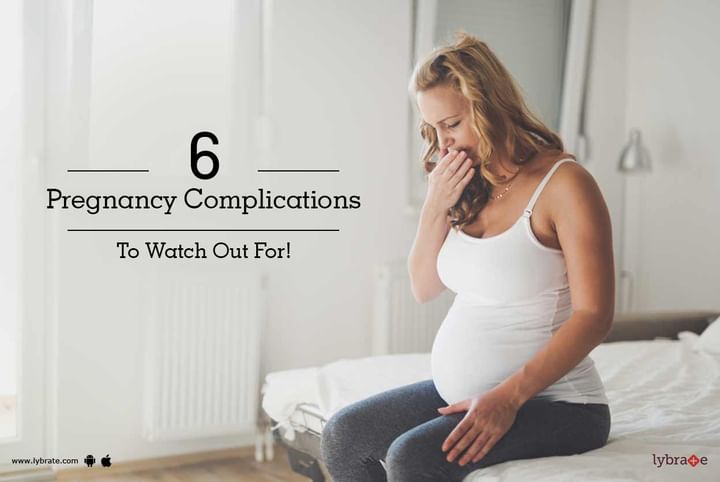6 Pregnancy Complications To Watch Out For!
Pregnancy is considered to be one of the most challenging and important phases in the life of a woman.
Pregnancy complications are health problems that occur during pregnancy. They can involve the mother’s health, the baby’s health, or both. Some women have health problems before they become pregnant that could lead to complications. Other problems during pregnancy. Keep in mind that whether a complication is common or rare, there are ways to manage problems that come up during pregnancy.
Some complications that might occur during pregnancy are discussed below:
- Severe Nausea and Vomiting: It is common for nausea and vomiting to occur during a pregnancy. In order to avoid this condition, one should consume several small meals throughout the day and completely avoid spicy and fatty foods.
- A persistent abdominal pain, severe headache, swelling and visual disturbances during the third trimester: This can be a fatal condition and often is a sign of high blood preeclampsia (pregnancy complication involving high blood pressure as well as damage to another organ system). It can be diagnosed early using good prenatal care which essentially comprises of frequent check-ups with the doctor and all the necessary treatment during pregnancy.
- Flu Symptoms: It is recommended that flu vaccine should be administered to pregnant women as they usually tend to develop the disease during their pregnancy.
- Gestational Diabetes: Gestational diabetes can increase the chance of a larger baby at birth and create delivery complications, increase your risk for high blood pressure and cause the baby to have blood sugar problems after birth. If you are diagnosed, it’s important to consult your gynecologist to control your blood sugar level, which can often be done through diet and exercise.
- Baby’s activity level significantly declines: Sometimes, the activity of a previously active baby might decline. This can be felt by reducing the number of the kicks by the baby. The doctor has specific equipment that aids in identifying and resolving the problem.
- Bleeding: Heavy bleeding accompanied by abdominal pain and menstrual-type cramps during the first trimester might indicate an ectopic pregnancy (embryo is implanted outside one’s uterus) or a miscarriage while occurrence in the third semester indicates placental abruption (characterized by the placenta separating from the womb’s walls). Any form of bleeding warrants the immediate attention of the doctor. Steps to avoid bleeding include bed rest, avoiding heavy work, and keeping yourself hydrated.
A Healthy Pregnancy-
The best way to ensure a healthy pregnancy is to focus on the things you can control and don’t obsess about what could happen. Take good care of yourself and your developing baby and talk with a healthcare provider when you have concerns.



+1.svg)
